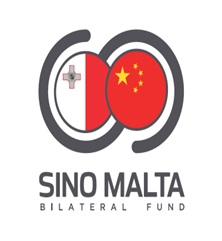
Register with Plumtri!
Register on plumtri as an Individual or as an Organisation to gain access to all of its useful features and remain updated on the latest R&I news, events and funding opportunities.
-
 Welcome to plumtriA platform for Research & Innovation
Welcome to plumtriA platform for Research & Innovation -
 Looking for Funding?Check out the current open calls
Looking for Funding?Check out the current open calls -
 Register today to start receiving our monthly newsletter
Register today to start receiving our monthly newsletter -
 Looking to partner up?Search our list of registered profiles
Looking to partner up?Search our list of registered profiles -
 You have questions on a particular funding programme?
You have questions on a particular funding programme?
Strengthening Malta’s R&I Ecosystem through international cooperation: Celebrating the Success of Four R&I Projects from the SINO-MALTA Fund's 2022 Call

International collaboration and cooperation in Research and Innovation (R&I) represent pivotal catalysts for enhancing the capacity of Malta's R&I ecosystem. The emphasis on cooperation facilitates the exchange of resources, ideas, capacities and expertise across international borders fostering a more diverse and inclusive scientific community, which opens new avenues for innovation and tackling global and shared challenges.
The Malta Council for Science and Technology (MCST) has been a key player in fostering a culture of research and innovation, particularly through strategic initiatives and investments. The SINO-MALTA Fund originated from an initial agreement on Science and Technological Cooperation between the Government of Malta and the Government of the People's Republic of China, which eventually led to the establishment and development of the Fund that is managed by MCST and the Ministry of Science and Technology (MOST) of the People’s Republic of China. The 4th Call for R&I Proposals of this Fund, launched in 2022, gave the opportunity to researchers working in the realm of Health, Digital Technologies, and the Green Transitions to submit proposals for financial support on a competitive basis. This 4th Call marked a significant milestone owing to the expansion of the Fund’s budget to approximately €800,000 of local funds that has been matched by the Chinese side.
As a result of the SINO-MALTA Fund 2022 Call, the following four projects received support:
Online Procedural Content Generation via Multi-Objective Optimization & Learning - OPtiMaL is a project being coordinated by Professor George Yannakakis from the University of Malta and Dr. Jailin Liu from Southern University of Science and Technology (SUSTech) within the Digital Technologies thematic area. Over the course of 24 months, the project aims to generate new multimodal contents with multi-dimensional diversity, which is human behavior aware and adapts to human experience. OPtiMaL adopts a new multi objective optimization and learning approach to procedural content generation, which is generally applicable to many domains.
Green Laser Post-Processing in Additive Manufacturing (GLAM) is a project being coordinated by Dr. Ing. Bonnie Attard from the University of Malta, Prof. Gauxin Lu from the Shandong University and Dr. Qiang Wang from the AECC Beijing Institute of Aeronautical materials. Electron beam powder bed fusion (EB-PBF) is a sustainable additive manufacturing technique used to fabricate complex parts with minimal energy consumption and waste. This project aims to improve the surface finish, structural integrity and dimensionality through the investigation of scanning parameters coupled with post-processing laser engineering techniques applied to demonstration components for aerospace and biomedical applications.
The GLAM Team during the project kick off meeting with MCST
Novel Antibiotic Synthesis and Development for Agriculture and Cancer Therapy (NASDAC) is a project being coordinated by Prof. Pierre Schembri Wismayer from the University of Malta, Prof. Yanxin Hu from the China Agricultural University and Prof. Zhenhui Liu from the University of China coordinating a project. A modified peptide derived from Phosphovitin, effective as an antimicrobial on resistant strains and helps wound healing, will be tested for anticancer activity, particularly on leukaemia and osteosarcoma, assessing differentiation induction. Some ossification of bone cells was shown by the parent protein in vitro. Bone strengthening with this peptide will also be tested using zebrafish models. Production and secretion of the peptide through a eukaryotic system will be done using the microalga Dunaliella Salina, which will aid in its mass production.
Ecological Natural Fibre Reinforced Composites (ECO Composites) is a project being coordinated by Prof. Ing. Duncan Camilleri from the University of Malta and Prof. Hongjun Li from the Zhejiang Sci-Tech University (China). It aims to develop ecological fibre reinforced composites made up from natural fibres extracted from the Agave plant, encapsulated in bio-based epoxy resins. The influence of different fibre weaving patterns on the structural performance of the bio-composite will be investigated through an experimental and numerical approach. The optimal bio-epoxy resin that is capable of conserving the material properties of the raw fibres and at the same provide a medium to transfer load efficiently will be identified.
Currently, MCST and MOST are in the process of awarding proposals submitted to the 5th Call for R&I Proposals launched in 2023, where through a further increase in budget to approximately €1.2M, six projects are planned to benefit from the Fund.
Based on the popularity and consistent success of these annual SINO-Malta Fund Calls, researchers from the academic, public and private sector, as well as other stakeholders, can expect that a 6th Call for Proposals, will be launched in the second quarter of 2024. Prospective applicants are invited to contact MCST through international.mcst@gov.mt for more information.
Dowload the orriginal article below.
Information and logo source:
Attachment: External Link

